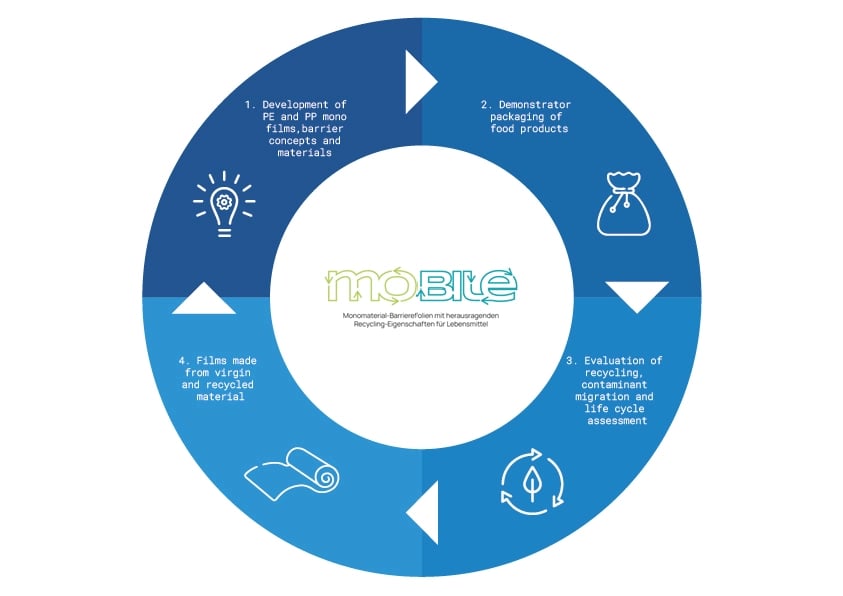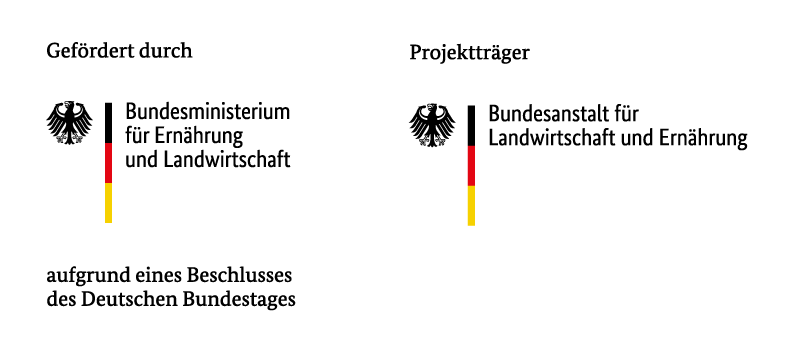- Mareike Deggelmann
- 26.01.26
- 3 min
- Funding advice, Agrifood, Bioeconomy
Your contact person
Dr Bassel Ibrahim
In the packaging sector, synthetic polymer films have been used for many years, especially for product protection, particularly in food packaging. However, despite their advantages, the disadvantages of fossil-based plastic products, especially short-lived food packaging, have recently come into focus.
The significant concern lies in the environmental impact resulting from the release of this material into the environment. This leads to polluted beaches and oceans, and plastic infiltration into the human body through the food chain. Alongside these environmental and health issues, ensuring sustainable resource utilization is also of utmost importance.
The joint project MoBiLe aims to develop a new type of film packaging in which the base material chemically consists of only one polymer (=monomaterial). The German acronym "MoBiLe" stands for: Monomaterial barrier films with outstanding recycling properties for food. "Design for Recycling" is a core focus, ensuring optimal recyclability and product protection. For this purpose, specially produced polyolefin films with special coatings or coating processes for food packaging with a high barrier function (ORMOCER®-based) will be developed.
|
About the MoBiLe project Duration: It started in 2023 and will run for three years.Partners: Eight partners from industry and research in Germany are involved in the project. Funding: The project is funded by the German Federal Ministry of Food and Agriculture (BMEL). Sponsor: The German Federal Agency for Agriculture and Food (BLE) is responsible for the project within the framework of the Innovation Promotion Programme. Coordination: The Fraunhofer Institute for Silicate Research ISC is coordinating the project. EurA's role: We support the research project and analyse the life cycle assessment. |
The film packaging under development must meet complex requirements, such as barrier properties against oxygen, water vapor, aroma protection, and resistance to contamination by foreign substances. The investigation of foreign substance migration is also a key component of the project, contributing to the legal assessment of recycling material usage in food packaging.

Another critical aspect of the MoBiLe project is resource usage analysis. Especially in the food packaging sector, finding resource-efficient solutions while maintaining product protection is of great importance. By comparing virgin and recycled materials and using various base materials like polyethylene and polypropylene, a sound basis for evaluating the ecological and economic impacts and determining the best approaches for sustainable packaging solutions is created.
The MoBiLe project takes a holistic approach, considering not only technical aspects of packaging development but also ecological aspects takes a holistic approach that not only considers the technical aspects of packaging development, but also incorporates ecological considerations.
EurA supports the project by conducting life cycle assessments according to DIN EN ISO 14040/14044 to assess and optimize the sustainability of the innovation throughout the entire value chain. Through the life cycle assessment, we can compare the environmental impacts of different scenarios and packaging variants, identify potential weaknesses and hotspots, and derive recommendations for action. We collaborate closely with other project partners to develop comprehensive solutions.
If you would like to learn more about our work within the MoBiLe project or have questions about the life cycle assessment analysis, our experts are available for further information.

Author: Dr. Bassel Ibrahim

Your contact person
Dr Bassel Ibrahim
EurA AG
T- 079619256-0Max-Eyth-Straße 2
73479 Ellwangen
info@eura-ag.com